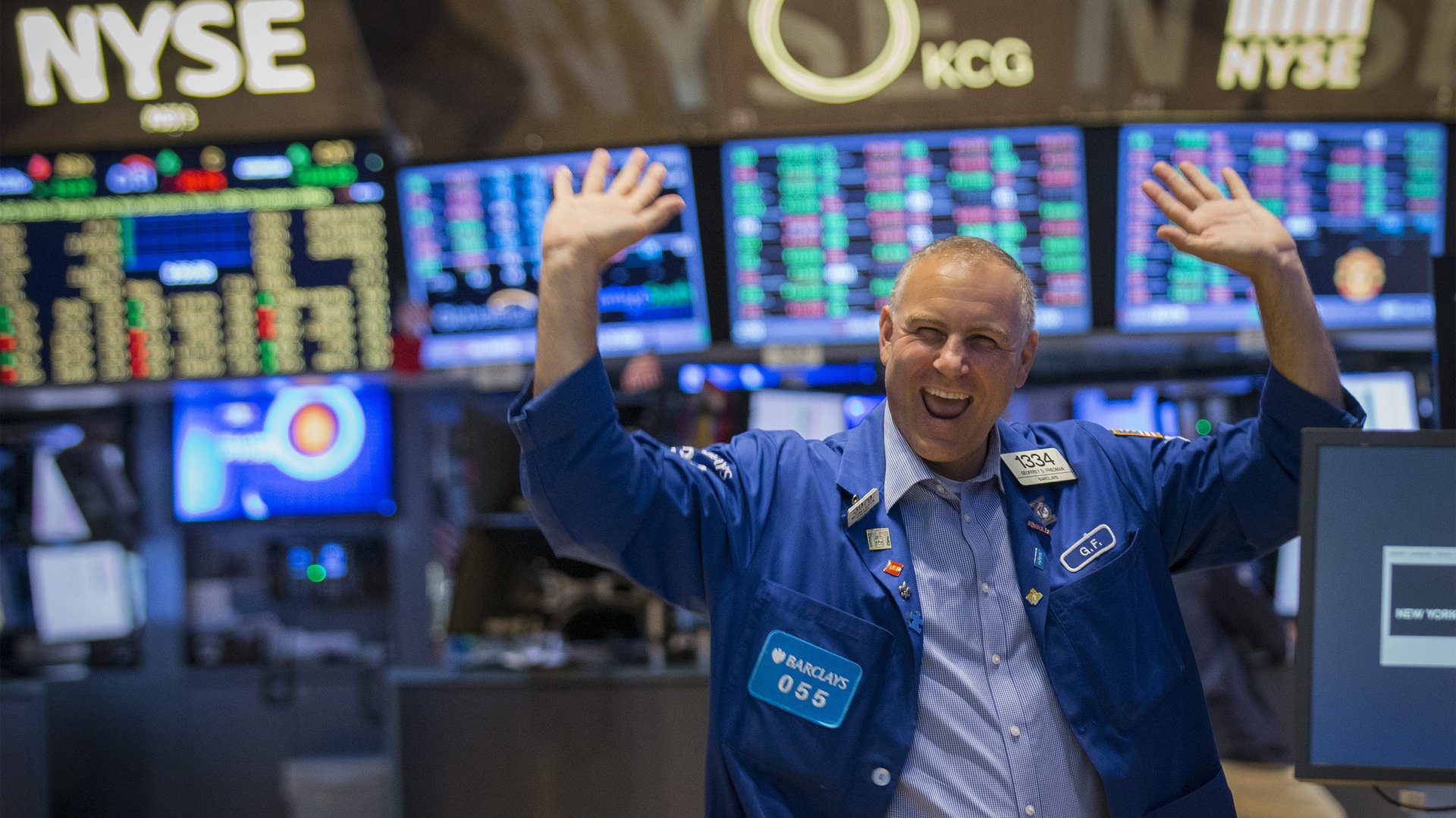What recession? The S&P 500 is at an all-time high
This is supposed to be a bad time for the global economy. The IMF forecasts a sychronized slowdown, with 70% of the world economy expected to record weaker GDP growth this year. Just a few weeks ago, bond markets were sending ominous signals that usually signal a recession is near.


This is supposed to be a bad time for the global economy. The IMF forecasts a sychronized slowdown, with 70% of the world economy expected to record weaker GDP growth this year. Just a few weeks ago, bond markets were sending ominous signals that usually signal a recession is near.
Nobody told the stock market. Yesterday, the S&P 500 closed at an all-time high.
US stocks have experience a huge reversal in fortune since the end of last year. The benchmark S&P 500 has surged 25% since Dec. 24, its most recent low. It’s been helped by the Federal Reserve, which responded to a slowdown in growth momentum and rising stress in financial markets by suggesting that it would pause interest rate hikes previously planned for 2019. Easing monetary policy tends to boost asset prices.
What tipped the S&P 500 into record territory this week is the surprisingly good start to earning season. Analysts had expected blue-chip companies to report an earnings decline in the first quarter. That would have been the first year-on-year decline since 2016. Revenue growth was also forecast to be the weakest since 2016.
Instead, the first batch of companies to report first-quarter earnings have blown past expectations. Around a fifth of companies in the S&P 500 have reported their latest quarterly earnings, and 78% of them beat expectations. For example, Twitter’s stock surged 16% yesterday after the tech company reported better earnings, revenue, and more daily users than anticipated. Tech stocks are once again the best performing industry (paywall) in the S&P 500. Facebook and Microsoft are due to report earnings later today and Amazon reports tomorrow.